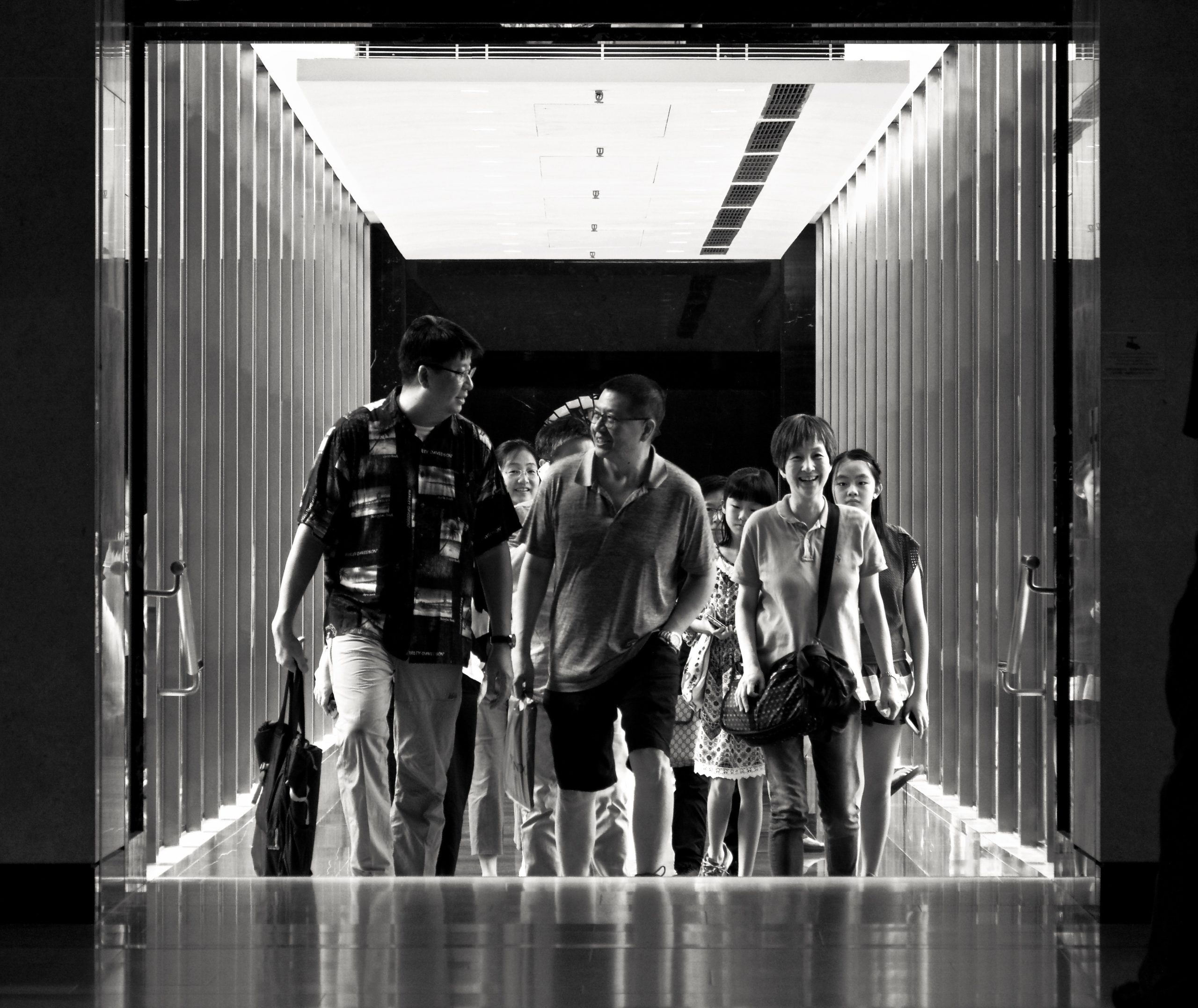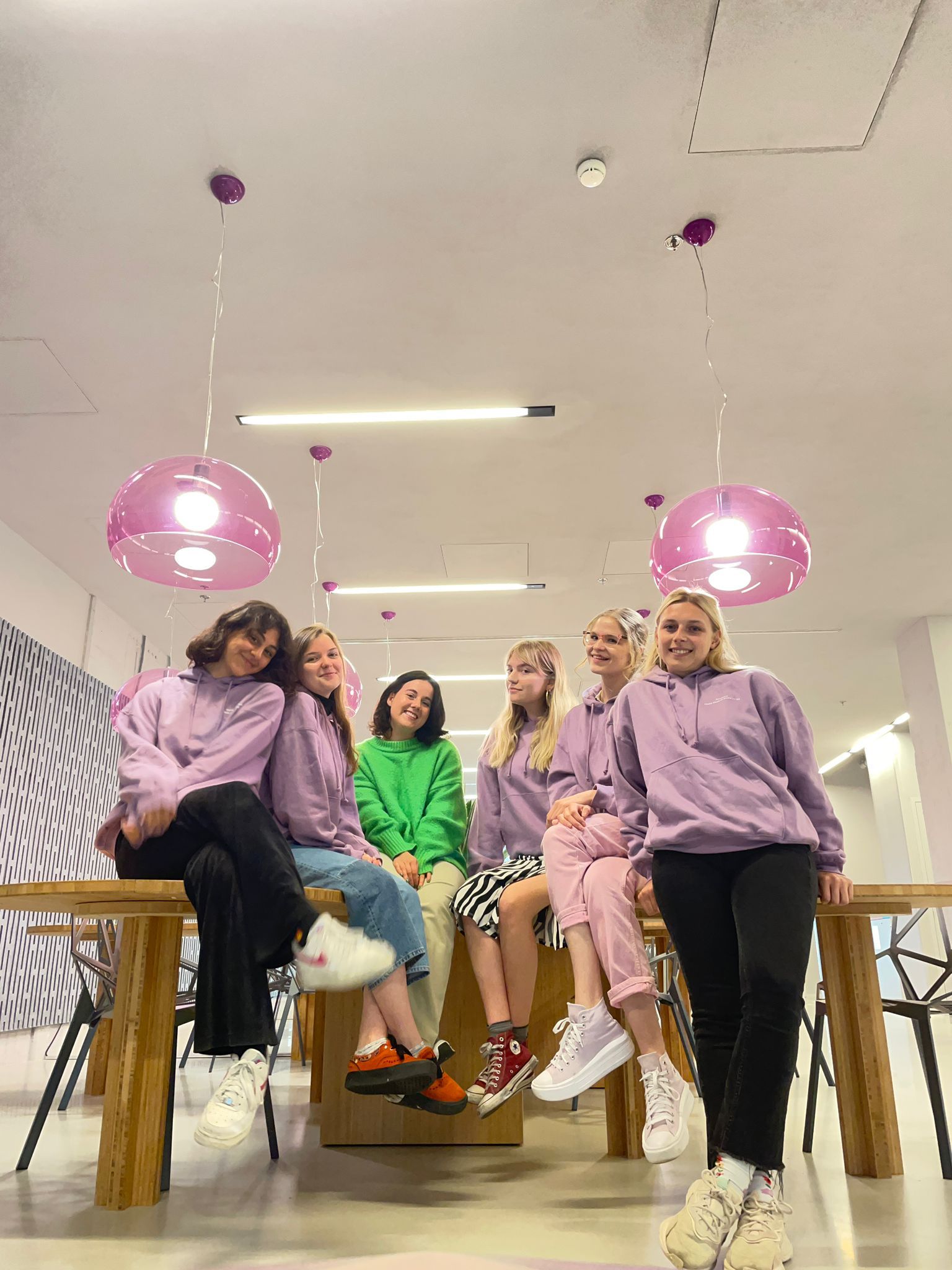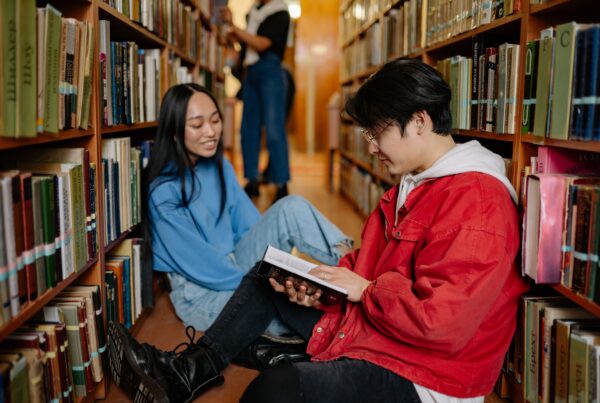
If the #MeToo movement has highlighted one thing, it’s that sexual violence takes place in every sphere of our lives – even on campus at the UvA. One of the more prominent cases deals with a professor from the department of Conservation and Restoration who sexually assaulted his students. However, most cases of sexual violence happen between students and are not publicly addressed. In recent years, the UvA has been more focused on providing social safety. Social safety as an umbrella term addresses several undesirable behaviours, including sexual harassment. However, is this term useful in tackling sexual violence or could it potentially place sexual violence under a taboo? To answer questions like this, Spiegeloog interviewed Olivia, the chair of the Our Bodies Our Voice UvA Student Board.
If the #MeToo movement has highlighted one thing, it’s that sexual violence takes place in every sphere of our lives – even on campus at the UvA. One of the more prominent cases deals with a professor from the department of Conservation and Restoration who sexually assaulted his students. However, most cases of sexual violence happen between students and are not publicly addressed. In recent years, the UvA has been more focused on providing social safety. Social safety as an umbrella term addresses several undesirable behaviours, including sexual harassment. However, is this term useful in tackling sexual violence or could it potentially place sexual violence under a taboo? To answer questions like this, Spiegeloog interviewed Olivia, the chair of the Our Bodies Our Voice UvA Student Board.

The OBOV UvA Student Board with Olivia von Greve-Dierfeld (in green) as chair.
Spiegeloog: What is the Our Bodies Our Voice (OBOV) foundation?
Olivia: Our Bodies Our Voice is a non-profit foundation that aims to prevent sexual violence and establish consent culture at universities in the Netherlands through workshops and trainings. They are not exclusively associated with the University of Amsterdam, but the UvA is one of their biggest clients and currently holds a 3-year contract with them, specifying that they give 30 workshops to staff, students, and study associations a year. Furthermore, they provide workshops to many educational institutions around the country.
The Our Bodies Our Voice UvA Student Board is the student branch of OBOV and tries to spread awareness with regards to the topic of sexual violence at the university. We try to contribute to breaking the taboo and stigma around the topic. We do this by creating spaces and events for students where they can talk or learn about issues related to the topic. Moreover, we also look at the internal structure of the University of Amsterdam, for instance by conducting last year’s survey on the prevalence of sexual violence and student’s knowledge about available help seeking resources at the UvA.
Spiegeloog: How come you joined the OBOV?
Olivia: I attended a workshop by OBOV during intreeweek and immediately fell in love with the organisation- I had never seen anyone doing that kind of work before and I really wanted to join, however, I did not know about the student board yet. When I saw on Facebook that the student board was recruiting during the summer of 2020, I knew I had to apply- and I did!
I have always been interested in the topic of sexual violence, but this interest became personal when I became a victim of it myself. Since then, I have seen and felt the stigma every day- because survivors second-guess whether they can share their story with others, if it will make people uncomfortable, and if they will be believed or judged.
I was lucky enough to have grown up in a family that taught me not to be ashamed of my experiences, meaning that I was able to make the choice to be open about my story and the ways it impacted my life.
Contributing to a university environment in which survivors of sexual violence feel safe, seen and cared for as well as to a university that actively helps prevent sexual violence from happening and that provides adequate care for students that do experience sexual violence became incredibly important to me.
Spiegeloog: The UvA uses the umbrella term “Social Safety” to address issues surrounding sexual violence, what do you think about using this term?
Olivia: The UvA does not use the term “sexual violence” but includes “sexual harassment” as one of their categories of undesirable behaviour. These undesirable behaviours, for example, bullying, stalking, discrimination, sexual harassment, and aggression or violence, are sub-categories of “Social Safety”.
A lot of large universities use umbrella terms, especially when they don’t have a specific department dedicated to the issue. Using “Social Safety” is fine if they do not disregard using the term sexual violence in practice. Yet, it can sometimes lead to confusion as not all relevant resources come up when searching for the term “Sexual Violence” on the website. It is thus important that students know what to look for and the terms the university chooses to use, so that they can find information about it.
Spiegeloog: Do you know of any statistics that highlight the prevalence of sexual violence at universities?
Olivia: Our survey has shown that experiences of sexual violence are prevalent among students in general. Of the 545 students we surveyed, 135 reported having experienced sexual violence during their time as students. Of these 135, 38.5% experienced sexual violence through a fellow student, meaning that this is a big issue. Of course, there are also cases where a staff member is the perpetrator, as we have seen in recent years, However, sexual violence between students is far more common, as we interact with each other in many spaces outside of university as well. Developing mechanisms to deal with this reality will be a big but important challenge for the coming years.
The amnesty research results have shown that 11% of women and 1% of men experience non-consensual penetration during their time as students and to 9% of women this will have happened before they enter university. These are very large numbers, showing that essentially one in five women at university has experienced sexual assault, meaning that we deal with a lot of survivors in the university environment.
This, however, is not necessarily reflected in how much support there is for these students and the way their trauma might impact their studies.
Spiegeloog: What would you advise students who experienced sexual violence?
Olivia: If students want help from the university, I suggest they check out the university’s website and contact a confidential adviser that can help them explore their options. In case students want help from outside the university, they could look up available centres. Several centres can be found on our website.
Besides contacting the institution or centres, I would encourage students to reach out to people they trust. These people can support the students and empower them by believing in their experiences and providing them with the kind of help they need. If one of the readers is approached by another student, please trust the person that asks for help and shares their story with you. They need people to empower and believe in them.
Spiegeloog: What would you advise the UvA to support victims of sexual violence and prevent sexual violence?
Olivia: I would advise the UvA to keep improving their website. They need to make sure it is well-structured, and that information is easily accessible and found under the right key terms. Moreover, the syllabus should be safe for survivors of sexual violence so that trigger warnings are established in lectures and seminars. The UvA also requires centralised reporting structures and systems for survivors which they can easily contact. As shown in our survey, many students are not aware of the help that is available and where to find it. Thus, the UvA should adequately inform students about these options. Additionally, these options should be catered around the needs of students. Students need to be involved in the conversations around social safety, so that the structures that are built are reflective of student’s needs, which in turn fosters the trust of students in the university. It is also important to have workshops in all faculties, making them more institutionalised. And finally, the UvA needs to believe survivors!
Spiegeloog: Where can students find you?
Olivia: Students can write to us via studentboard.obov@gmail.com or follow us on Instagram at @consent.at.uva. Upcoming events like workshops, open-mic nights etc. are also posted on our Instagram page. We would be happy for anyone reading this to attend future events or take their friends to those!

The OBOV UvA Student Board with Olivia von Greve-Dierfled (in green) as chair.
Spiegeloog: What is the Our Bodies Our Voice (OBOV) foundation?
Olivia: Our Bodies Our Voice is a non-profit foundation that aims to prevent sexual violence and establish consent culture at universities in the Netherlands through workshops and trainings. They are not exclusively associated with the University of Amsterdam, but the UvA is one of their biggest clients and currently holds a 3-year contract with them, specifying that they give 30 workshops to staff, students, and study associations a year. Furthermore, they provide workshops to many educational institutions around the country.
The Our Bodies Our Voice UvA Student Board is the student branch of OBOV and tries to spread awareness with regards to the topic of sexual violence at the university. We try to contribute to breaking the taboo and stigma around the topic. We do this by creating spaces and events for students where they can talk or learn about issues related to the topic. Moreover, we also look at the internal structure of the University of Amsterdam, for instance by conducting last year’s survey on the prevalence of sexual violence and student’s knowledge about available help seeking resources at the UvA.
Spiegeloog: How come you joined the OBOV?
Olivia: I attended a workshop by OBOV during intreeweek and immediately fell in love with the organisation- I had never seen anyone doing that kind of work before and I really wanted to join, however, I did not know about the student board yet. When I saw on Facebook that the student board was recruiting during the summer of 2020, I knew I had to apply- and I did!
I have always been interested in the topic of sexual violence, but this interest became personal when I became a victim of it myself. Since then, I have seen and felt the stigma every day- because survivors second-guess whether they can share their story with others, if it will make people uncomfortable, and if they will be believed or judged.
I was lucky enough to have grown up in a family that taught me not to be ashamed of my experiences, meaning that I was able to make the choice to be open about my story and the ways it impacted my life.
Contributing to a university environment in which survivors of sexual violence feel safe, seen and cared for as well as to a university that actively helps prevent sexual violence from happening and that provides adequate care for students that do experience sexual violence became incredibly important to me.
Spiegeloog: The UvA uses the umbrella term “Social Safety” to address issues surrounding sexual violence, what do you think about using this term?
Olivia: The UvA does not use the term “sexual violence” but includes “sexual harassment” as one of their categories of undesirable behaviour. These undesirable behaviours, for example, bullying, stalking, discrimination, sexual harassment, and aggression or violence, are sub-categories of “Social Safety”.
A lot of large universities use umbrella terms, especially when they don’t have a specific department dedicated to the issue. Using “Social Safety” is fine if they do not disregard using the term sexual violence in practice. Yet, it can sometimes lead to confusion as not all relevant resources come up when searching for the term “Sexual Violence” on the website. It is thus important that students know what to look for and the terms the university chooses to use, so that they can find information about it.
Spiegeloog: Do you know of any statistics that highlight the prevalence of sexual violence at universities?
Olivia: Our survey has shown that experiences of sexual violence are prevalent among students in general. Of the 545 students we surveyed, 135 reported having experienced sexual violence during their time as students. Of these 135, 38.5% experienced sexual violence through a fellow student, meaning that this is a big issue. Of course, there are also cases where a staff member is the perpetrator, as we have seen in recent years, However, sexual violence between students is far more common, as we interact with each other in many spaces outside of university as well. Developing mechanisms to deal with this reality will be a big but important challenge for the coming years.
The amnesty research results have shown that 11% of women and 1% of men experience non-consensual penetration during their time as students and to 9% of women this will have happened before they enter university. These are very large numbers, showing that essentially one in five women at university has experienced sexual assault, meaning that we deal with a lot of survivors in the university environment.
This, however, is not necessarily reflected in how much support there is for these students and the way their trauma might impact their studies.
Spiegeloog: What would you advise students who experienced sexual violence?
Olivia: If students want help from the university, I suggest they check out the university’s website and contact a confidential adviser that can help them explore their options. In case students want help from outside the university, they could look up available centres. Several centres can be found on our website.
Besides contacting the institution or centres, I would encourage students to reach out to people they trust. These people can support the students and empower them by believing in their experiences and providing them with the kind of help they need. If one of the readers is approached by another student, please trust the person that asks for help and shares their story with you. They need people to empower and believe in them.
Spiegeloog: What would you advise the UvA to support victims of sexual violence and prevent sexual violence?
Olivia: I would advise the UvA to keep improving their website. They need to make sure it is well-structured, and that information is easily accessible and found under the right key terms. Moreover, the syllabus should be safe for survivors of sexual violence so that trigger warnings are established in lectures and seminars. The UvA also requires centralised reporting structures and systems for survivors which they can easily contact. As shown in our survey, many students are not aware of the help that is available and where to find it. Thus, the UvA should adequately inform students about these options. Additionally, these options should be catered around the needs of students. Students need to be involved in the conversations around social safety, so that the structures that are built are reflective of student’s needs, which in turn fosters the trust of students in the university. It is also important to have workshops in all faculties, making them more institutionalised. And finally, the UvA needs to believe survivors!
Spiegeloog: Where can students find you?
Olivia: Students can write to us via studentboard.obov@gmail.com or follow us on Instagram at @consent.at.uva. Upcoming events like workshops, open-mic nights etc. are also posted on our Instagram page. We would be happy for anyone reading this to attend future events or take their friends to those!

